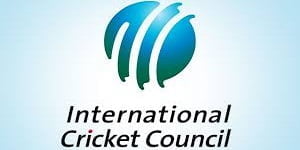The International Cricket Council (ICC) holds a prestigious position as the global governing body of cricket. With its origins dating back to the early 20th century, the ICC has played a vital role in shaping the sport and ensuring its growth and development across the world.
A Legacy of Leadership
The ICC traces its roots to the formation of the Imperial Cricket Conference in 1909. At that time, representatives from Australia, England, and South Africa came together to discuss matters related to international cricket. This conference paved the way for greater collaboration and cooperation among cricket-playing nations.
In 1965, the organization was renamed the International Cricket Conference, reflecting its growing influence and global reach. Finally, in 1987, it assumed its current name, the International Cricket Council, solidifying its status as the ultimate authority in cricket.
Roles and Responsibilities
The ICC has a wide range of responsibilities, all aimed at promoting and safeguarding the spirit of cricket. Its primary role is to govern and regulate the game at the international level, ensuring fair play, sportsmanship, and integrity in all cricketing activities.
One of the most important functions of the ICC is to organize and oversee international cricket tournaments and events. This includes the prestigious Cricket World Cup, the ICC Champions Trophy, and various other tournaments across different formats of the game.
The ICC also plays a crucial role in maintaining the laws of cricket, in collaboration with the Marylebone Cricket Club (MCC). These laws form the foundation of the game and are universally followed by all cricket-playing nations.
In addition to its regulatory functions, the ICC is responsible for promoting the growth and development of cricket worldwide. It actively supports and encourages the participation of new and emerging cricketing nations, providing them with the necessary resources and guidance to develop their cricketing infrastructure and talent.
Ensuring Fair Play and Integrity
As the global governing body, the ICC places great emphasis on upholding the values of fair play and integrity in cricket. It has implemented various measures to combat corruption, match-fixing, and other forms of malpractice that threaten the integrity of the game.
The ICC’s Anti-Corruption Unit (ACU) works tirelessly to prevent, investigate, and prosecute any instances of corruption in cricket. It collaborates with law enforcement agencies, cricket boards, and players to maintain the highest standards of transparency and integrity.
Furthermore, the ICC has established a robust anti-doping program to ensure that cricket remains a clean and drug-free sport. It conducts regular testing of players and educates them about the dangers and consequences of doping.
Conclusion
The International Cricket Council stands as the global authority in cricket, overseeing the sport’s governance, development, and integrity. With its rich history and commitment to fair play, the ICC continues to shape the future of cricket, ensuring that the game remains a source of joy and inspiration for millions of fans worldwide.
